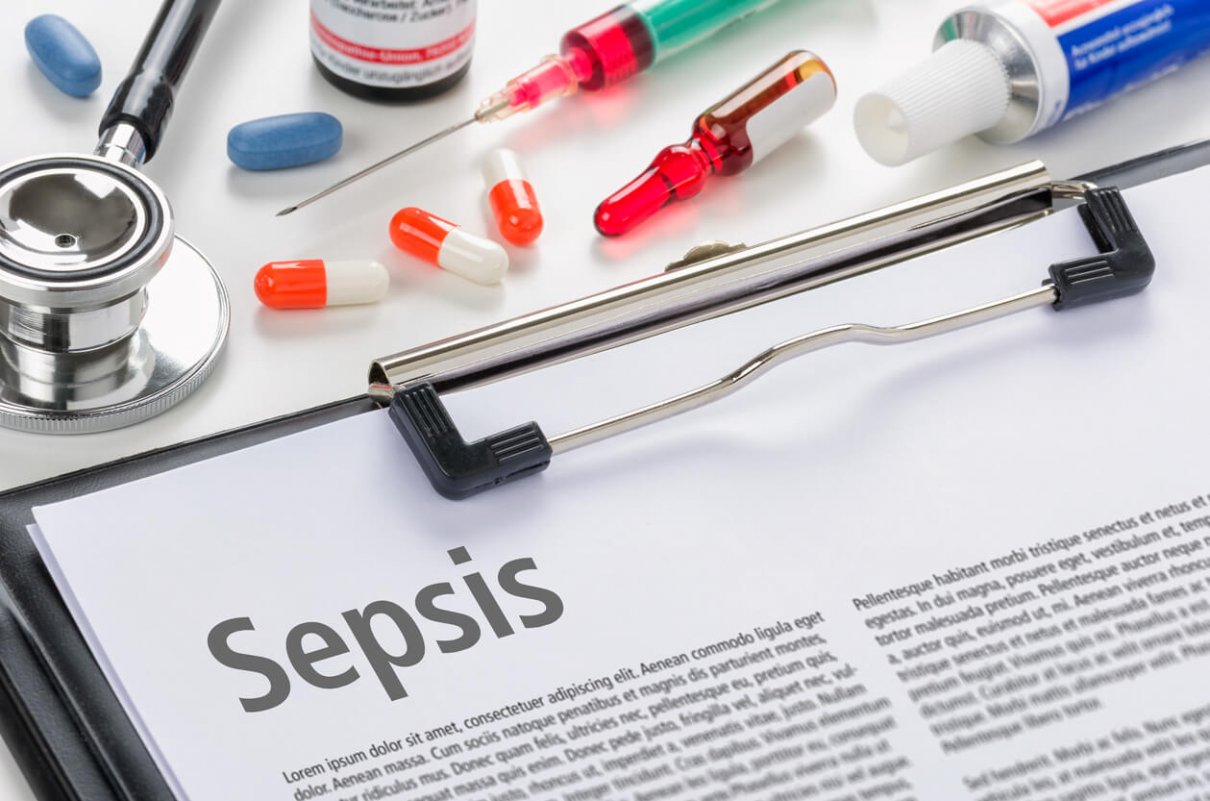Over $600 million in
verdicts & settlements
for our clients.
$185,000,000
Verdict
ERNST & YOUNG
Accouting Malpractice
$150,000,000
Verdict
EXXON MOBIL
Gas Leak
$25,000,000
Verdict
BELL ATLANTIC
Business Fraud
$11,800,000
Verdict
PERSONAL INJURY
Sepsis is not a disease, but your body’s response to an infection. A lot of people don’t understand what sepsis is or what causes it.

What Is Sepsis?
Sepsis happens when your body overreacts to an infection, causing changes that can damage any part of your body. It can progress to septic shock and ultimately to death. Some call it “blood poisoning”, but this is inaccurate. No poison involved, but, rather, an internal reaction caused by your immune system going into overdrive. Sepsis can range in severity from relatively mild to life-threatening.
The symptoms of sepsis include:
- Elevated respiratory rate, at least 22 breaths per minute, shortness of breath
- Confusion or disorientation
- An upper blood pressure reading of no more than 100 millimeters of mercury
- Elevated heart rate
- Fever or chills
- Extreme pain
- Clammy or sweaty skin
Septic shock causes blood pressure to drop to 65 millimeters of mercury and increased lactic acid in the blood. Sepsis can cause impaired blood flow to vital organs, and blood clots that can cause organ failure and tissue loss (gangrene). Because of this, sepsis can sometimes lead to amputation of extremities.
Who Is at Risk for Sepsis?
Sepsis most often occurs in people who are, or who have recently been hospitalized. It’s particularly common for patients in the intensive care unit. Specific risk factors include:
- Age – sepsis is more common in children under 1 and seniors 65 or older
- A compromised immune system
- Diabetes
- Cirrhosis
- Open wounds or injuries, especially burns
- Invasive medical devices
- Previous use of antibiotics or corticosteroids
- Surgery
Sepsis is a common complication of any kind of surgery. However, it results from any infection, including viral infections (although it’s most often associated with bacterial infections).
How Can Sepsis Be Prevented?
The best way to prevent sepsis is to practice overall good hygiene. If you have a cut or burn, keep it clean and covered until healed. You should also:
- Follow your doctor’s instructions if you have a chronic condition.
- Get all the recommended vaccines.
- Know the symptoms of sepsis and seek medical care right away.
- Monitor any cuts or injuries for signs of infection, such as redness around the wound, the skin becoming warm to the touch, or discharge from the wound. Go to your doctor if you do. Bear in mind that even extremely minor injuries such as insect bites can become infected.
- Don’t ask your doctor for antibiotics for a cold, as overuse of antibiotics causes infection problems later. Don’t take antibiotics prescribed for somebody else.
- If you are given antibiotics, always finish the course, even if you feel better. Don’t “save unused antibiotics for later”.
If you are hospitalized, especially if you have had surgery or invasive medical devices, ask if any lingering symptoms could be sepsis. The sooner it is treated, the better your chances of making a full recovery and the lower the risk of going into full-blown septic shock.
How to Treat Sepsis
There are a number of treatments used for sepsis, and a doctor will determine what to use:
- Antibiotics. Doctors may take cultures to establish exactly what is causing the infection. Some healthcare-related infections are caused by multidrug resistant bacteria, and a specific antibiotic may be needed.
- Intravenous fluids to prevent dehydration.
- Vasopressors to elevate blood pressure.
- Low dose corticosteroids.
- Painkillers or sedatives.
- Insulin (yes, even if you aren’t diabetic).
- Oxygen to help with breathing. Some patients may have to go onto a ventilator.
- Dialysis if kidneys are affected.
Are There Long-Term Effects?
Unfortunately, there can be long-term effects of sepsis. It’s also common for there to be lingering symptoms, which can include body pains, difficulty sleeping, shortness of breath, weight loss or lack of appetite, and effects on skin, nails, and hair. Most of these symptoms will eventually resolve.
However, there can be permanent damage caused by a sepsis infection, which can include:
- Limb amputation
- Long-term organ dysfunction. For example, some victims may experience permanent kidney damage and have to continue dialysis or seek a transplant
- Decreased cognitive function
- Insomnia
- Panic attacks
- Nightmares
- Muscle and joint pain, which can be disabling
- Loss of self-esteem
- Higher risk of future infections, whether because of the sepsis itself or because of high levels of antibiotics needed to treat it
This means that sepsis can be a life-changing condition. A small number of patients may also die. Many sepsis patients end up needing therapy to help them recover mentally. Depression and frustration are common during recovery, especially for people who were previously fit and healthy. Patients are often unable to work for weeks, and the mental, physical, and financial costs of recovery can be considerable. The good news is that most people do recover fully from milld sepsis. However, the mortality rate for septic shock is about 40 percent.
What Should I Do Next?

You might be asking whether sepsis that happens as a result of hospitalization is the fault of the hospital or your doctors? The answer is: It depends. Infection control in hospitals is a tricky matter, and it is not always somebody’s fault.
However, if you witness hygiene procedures not being followed or if concerns about sepsis are not being taken seriously, then you may well have a case for medical malpractice. It can also occur when doctors fail to diagnose an infection or fail to use the right treatment. Overuse of antibiotics contributes to multidrug-resistant infections that are more likely to lead to sepsis. In other words, sometimes it can be caused by medical negligence, and if that is the case then you may be entitled to compensation.
Conclusion
While you should focus on your recovery, it may be worth contacting a lawyer to see if you have a case. Damages can help cover your costs while you are unable to work and can compensate you for permanent disability, especially if you have lost a limb or have long-term organ damage or cognitive issues. If you or a loved one experienced sepsis after hospital treatment or surgery, then contact Weltcheck, Mallahan & Weltchek for a free initial consultation.
Who Can You Trust with Your Case?
Have you or a loved one been injured due to negligence? We want to help. Don’t hesitate to contact us if you believe you have a case; time is an important factor. Interested in learning more? Get in touch with us so we can better evaluate and serve your needs in getting the justice your loved one deserves. You may very well be entitled to compensation.

Call For a Free Consultation









